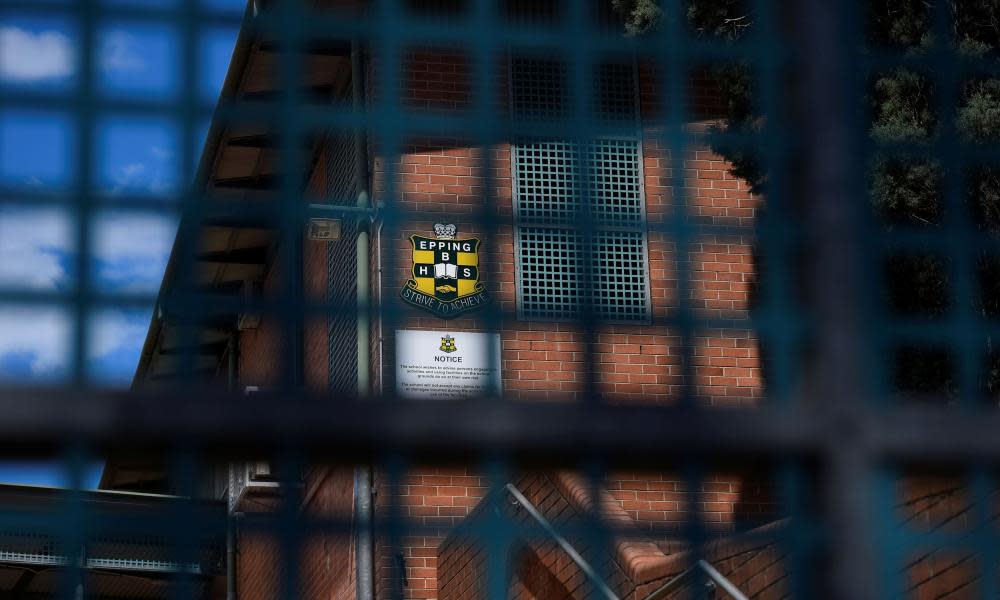Australian universities change admissions as coronavirus disrupts education

Australian universities are changing traditional admission policies amid growing calls for state education authorities to amend requirements for students caught up in the coronavirus pandemic during their final year of schooling.
Year 12 students across the country head into the Easter holidays with little certainty about how assessments will progress if school closures continue into the next term.
While some state governments have announced changes to final-year assessments, ministers were unable to agree on the makeup of end-of-year exams at an education council meeting last week.
“Ministers agreed that it is important that no senior secondary student is disadvantaged,” the education council said after the meeting. “Future decisions will ensure equitable outcomes for all senior secondary students as they complete their schooling.”
For now, state education ministers say end-of-year exams will proceed. On Wednesday the Victorian education minister, James Merlino, said final-year students “will complete their studies”.
“Our students and their families, teachers and principals are obviously concerned about what the impact of the coronavirus pandemic will be on students who are currently doing their VCE or VCAL,” he said.
“Our year 11 and 12 students will receive the care and support they need during this important time in their schooling.
“We are working on a range of options to ensure they supported to do that. This includes a greater focus on online learning, the delaying of deadlines for particular pieces of assessable work [and] the timing of exams, and looking at what other supports we can provide.”
Other state education authorities have already begun making changes to requirements for year 12 students.
In Queensland the education department announced on Wednesday that it had decided to drop one of the four assessments usually required for final-year students in each subject “to provide some relief for students during this time, and support teachers manage reduced classroom time”.
New South Wales announced last week that higher school certificate exams would go ahead but principals would be given more power over the number and weighting of assessments.
Some universities have already begun taking steps to change the way they process admissions.
On Tuesday night the University of Western Australia – one of the Group of Eight which makes up Australia’s most prestigious tertiary education providers – told potential students it was offering two new entrance pathways into its main undergraduate degrees.
Beyond the normal Australian tertiary admission rank, UWA said it would also admit students on the basis of a predicted Atar calculated using a student’s year 11 results as well as a special tertiary admissions test.
While there are some limits on the degrees offered under the new admissions pathways, UWA said it had made the announcement early to “put your minds at ease during this time of unprecedented uncertainty”.
Universities Australia, the peak body for the tertiary sector, said all universities were developing “contingency plans” in case there was widespread disruption to admissions.
“Universities use a range of criteria as part of their admittance processes,” said UA’s chief executive, Catriona Jackson. “This unprecedented situation is changing so rapidly that the impacts on both universities and schools six, nine and 12 months from now just aren’t possible to predict.
“However, universities are nonetheless aware of the potential impact of COVID-19 on school examinations and are developing contingency plans. These will be updated as circumstances change.”
Some education experts think decisions like the one made by UWA should be taken across the board.
Peter Hutton, one of the conveners of the Future Schools Alliance, has written to state education ministers and started a petition calling for the Atar to be scrapped in 2020.
Hutton has long believed that the Atar system is inequitable and fails to properly measure student potential. As a former principal of the Templestowe College in Melbourne, he scrapped year groupings and formed an agreement with Swinburne University which allowed soon-to-graduate students to gain pre-acceptance without having an Atar and study a university subject in their final year of schooling.
He says the disruption caused by Covid-19 could be an opportunity to take the pressure off students to gain university admission.
“What I would like is for the ministers to come out and say to the kids, don’t panic, we’ll sort you out, you aren’t going to miss out on university,” he said.
“There are huge mental health impacts to the current situation and its unfair to put kids through preparing for an exam period that’s going to be called off. They should be saying every young person in 2020 who has the prerequisites – and they obviously do need some form of pass-fail prerequisites – can go to university.
“It’s unfair to grade kids given the level and of the disruption and the difference between the haves and have-nots in terms of technological capabilities at home.”

 Yahoo News
Yahoo News 
